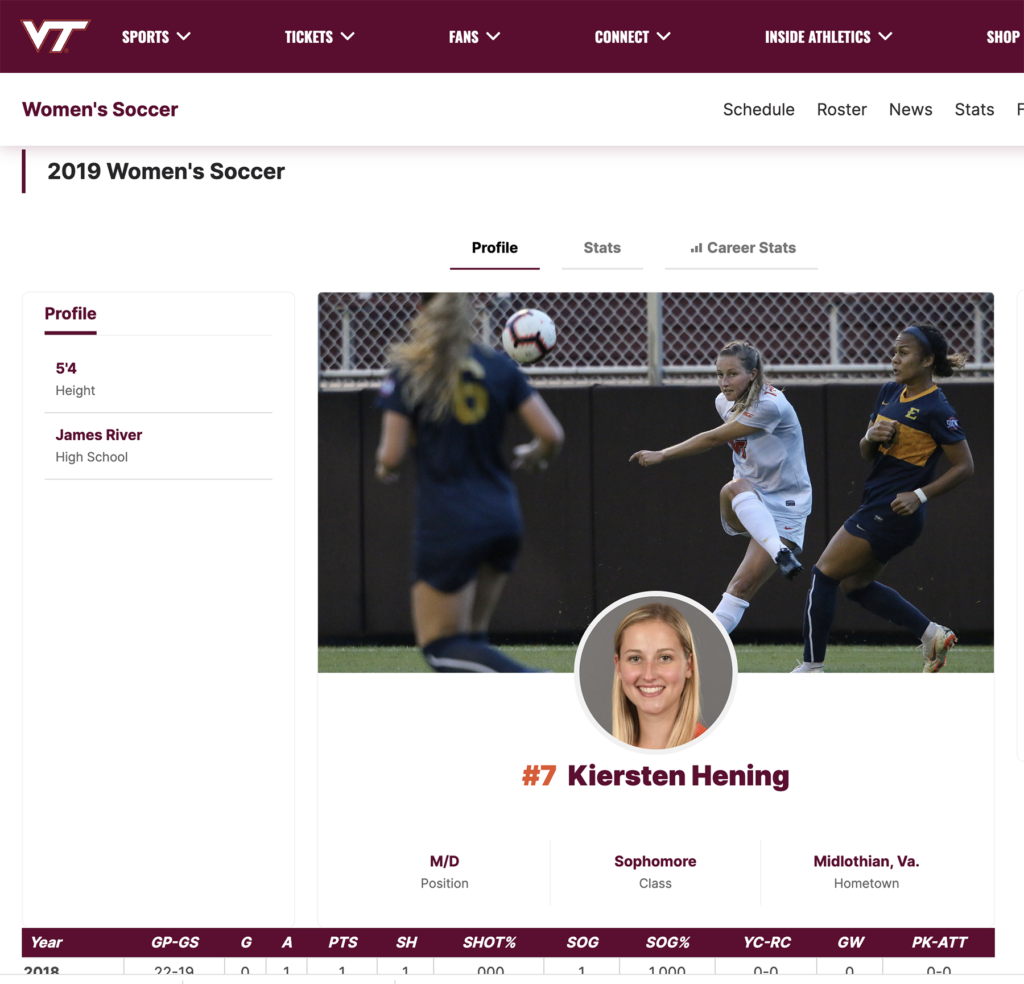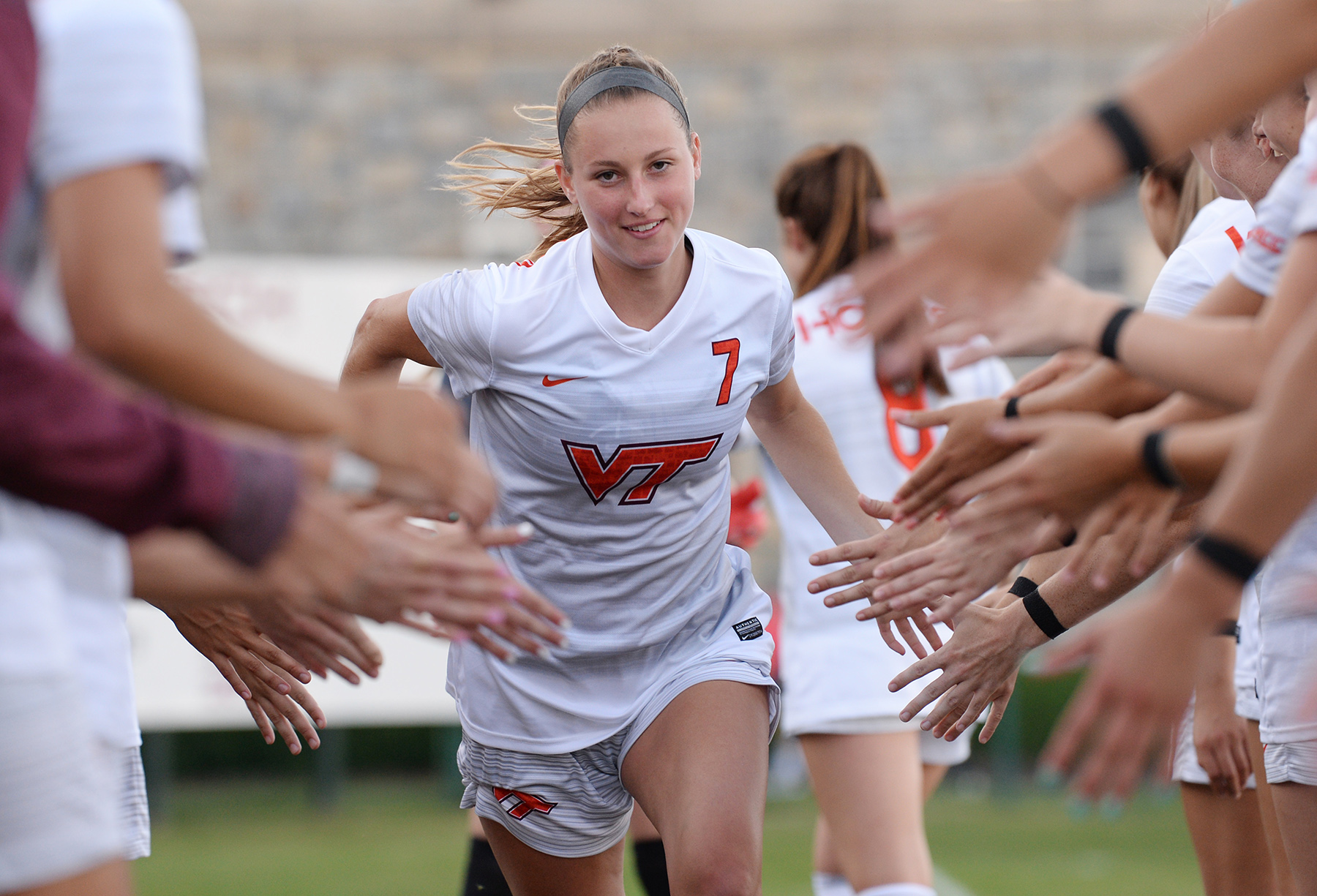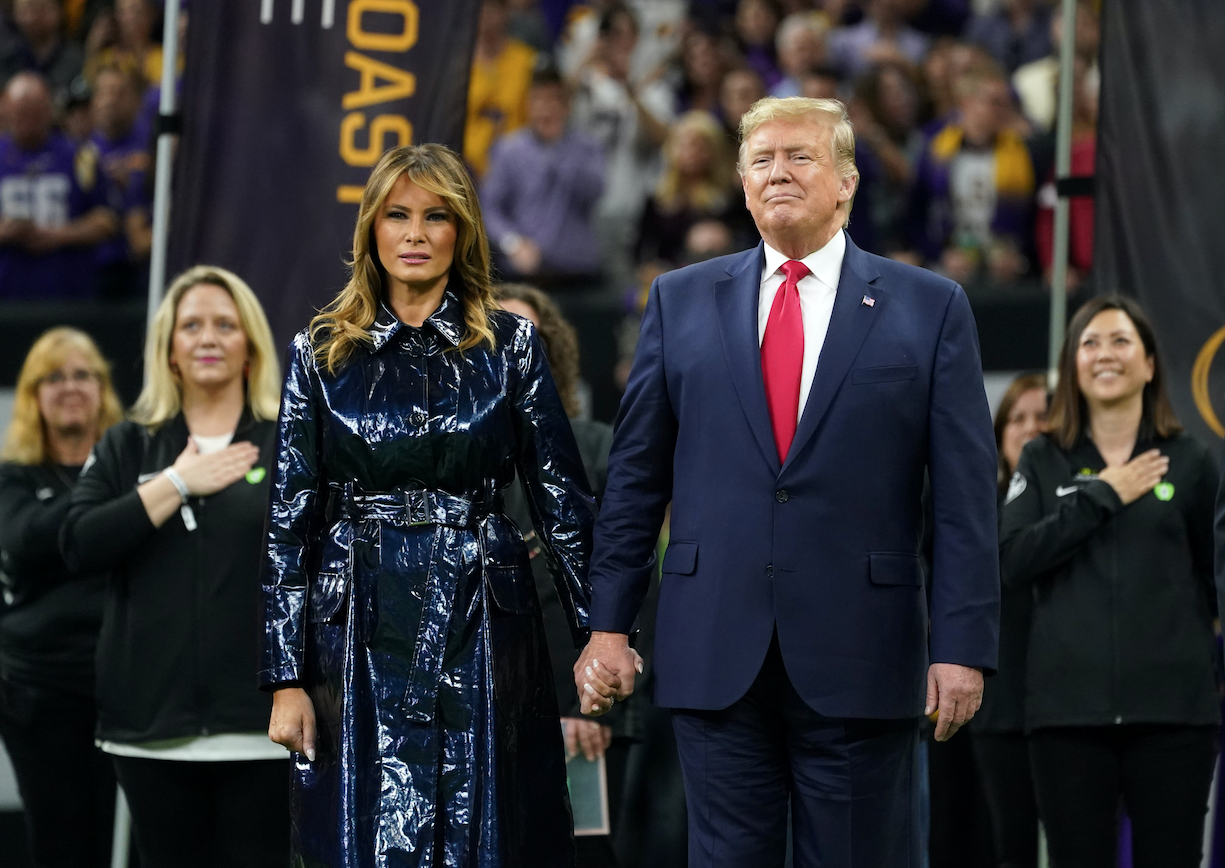A former Virginia Tech women’s soccer player who refused to kneel in support of political protest in 2020 sued her coach for allegedly retaliating against her and forcing her off the team. On Dec. 2, a federal district judge denied the coach’s motion for summary judgment, advancing the case to trial.
Kiersten Hening, in 2020 a junior and starter on the soccer team, sued head coach Charles “Chugger” Adair for allegedly retaliating against her for her political views after she refused to kneel in support of Black Lives Matter, (BLM), at the season opener. Hening claims Adair “benched her, subjected her to repeated verbal abuse, and forced her off the team,” according to the lawsuit filed in the U.S. District Court for the Western District of Virginia in March 2021.
Hening requested a permanent injunction ordering Adair to receive First Amendment training and to let her rejoin the team with no future retaliation. Hening resigned from the team in September 2020, but she still has two years of NCAA eligibility remaining.
Adair filed a motion for summary judgment, arguing that Hening failed to prove that his actions negatively affected her First Amendment rights, or that his actions were a direct result of her refusal to kneel.
But U.S. District Judge Thomas Cullen denied Adair’s motion, moving the case to trial.
“The court concludes that there is sufficient evidence in the record supporting Hening’s claim that Adair’s actions, whatever his motives, adversely affected her First Amendment rights,” Judge Cullen wrote in his Dec. 2 opinion.
In 2016, San Francisco 49ers quarterback Colin Kaepernick kneeled during the national anthem to protest police brutality. His silent protest sparked controversy but also spread nationally, as other athletes of all ages began kneeling before games. After Minneapolis Police killed George Floyd in 2020, massive protests broke out across the country, furthering Kaepernick’s message. BLM is an organization and movement that primarily focuses on police brutality, discrimination and other instances of racially motivated violence.
The Student-Athlete Advisory Committee discussed ways that athletes at Virginia Tech, an NCAA Division 1 school, could support the BLM movement in September 2020, according to the complaint. The discussion led to proposed BLM masks and shirts to be worn by Virginia Tech athletes during pregame warmups and games, among other things.
Adair supported the BLM movement, as well as the involvement of the women’s soccer team in the proposed support, the complaint stated.
According to the complaint, “Hening quietly dissented. While Hening supports social justice and believes that black lives matter, she does not support BLM the organization. She disagrees with its tactics and core tenets of its mission statement, including defunding the police and eliminating the nuclear family.”
Hening then shared her opinions with other players, but some players allegedly took screenshots of her messages and shared them with the coaching staff and demanded that Adair “address the fact that some of his players were ‘racist’ and did not support BLM,” according to the suit.
Virginia Tech athletics are part of the Atlantic Coast Conference, (ACC). In September 2020, the ACC introduced a “Unity Statement” that would be read at the start of all ACC games.
“We, the ACC, are committed to seeing each other as equals, supporting each other, and treating each other with respect and dignity at all times, recognizing that our differences don’t divide us, but they make us stronger,” the statement reads.
According to the complaint, the ACC statement was read at the start of the season opener where the Virginia Tech Hokies played the University of Virginia, (UVA).
“While other starters knelt during the unity statement to mirror Kaepernick’s protest and to express support for BLM, Hening remained standing,” the complaint stated.
The complaint alleges that during halftime at the season opener, Adair “berated Hening for her stance,” and “denounced” her for “‘bitching and moaning,’ for being selfish and individualistic, and for ‘doing her own thing.’”
During two film viewings after the opening, when the team rewatched the previous two games and discussed their performance, Hening was again allegedly berated and tormented. In the second game of the season, Hening played a total of 29 minutes. In the third, she played only five. Hening subsequently resigned from the team.
While Adair claimed that Hening only lost playing time due to poor performance, Judge Cullen stated that “the weight of the evidence does not cut in Adair’s favor, at least at this stage.”
Judge Cullen added that Hening started in nearly 40 games before the 2020 season opener, and typically played close to the full 90 minutes of each game.
Judge Cullen stated that “the record established that Hening was a stalwart defender on the women’s team for two years prior to the 2020 season.”
“As a freshman, Hening averaged 76 minutes of playing time; as a sophomore, nearly 88,” Judge Cullen wrote. “Ultimately, Adair may convince a jury that this coaching decision was based solely on Hening’s poor play during the UVA game, but the court, viewing the evidence in the light most favorable to Hening, cannot reach that conclusion as a matter of law.”
According to the Foundation for Individual Rights and Expression, (FIRE), student-athletes maintain First Amendment rights to freedom of speech and expression, and cannot be compelled to “express views or support organizations they oppose.”
“This is true whether the athlete wants to opt out of standing for a pledge, statement, or anthem, or wants to stand while her teammates kneel,” FIRE wrote in a piece about Hening’s lawsuit. “BLM may be a current cause célèbre on some fields, and opposed in other courts, but the popularity of speech doesn’t determine its protection, and a free society protects its dissenters from formal retribution. No one should be required to align their ideology with a political cause in order to score points with an authority figure or avoid retaliation.”
Regarding Hening’s First Amendment argument, Judge Cullen noted that “the core constitutional principle is both clearly established and fundamental to a free society, and especially to an institution of higher education.”
Taking a knee during the national anthem is symbolic speech that has a long history in the United States. Because the First Amendment provides protection against only actions by a government entity, NFL players who are employed by private businesses cannot call on the protection of the First Amendment. However, students who are enrolled in public schools do enjoy First Amendment safeguards because public schools are government entities.
While Hening was allegedly retaliated against for refusing to kneel, other athletes have been punished for kneeling in silent protest.
In 2019, former Kennesaw State University cheerleader Tommia Dean was awarded $145,000 in a settlement after Dean and four other cheerleaders, inspired by Kaepernick’s protests against police brutality, knelt during the singing of the national anthem. Although the cheerleaders were not directly punished, the athletic department barred the whole team from standing on the field during the national anthem in subsequent games.
Dec. 2, 2022 — U.S. District Judge Thomas Cullen Opinion
March 3, 2021 — Kiersten Hening v. Charles “Chugger” Adair, Complaint
Tags




